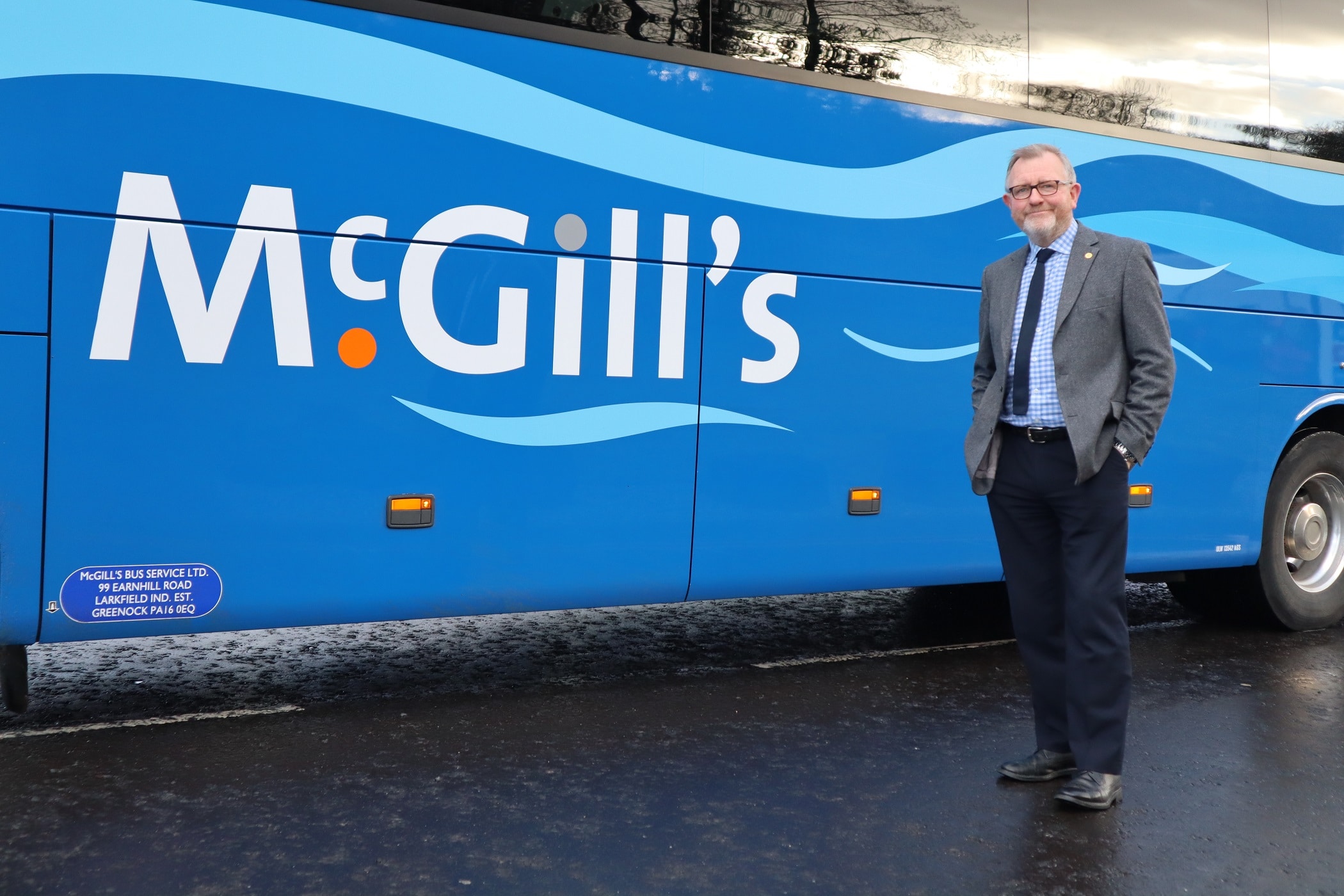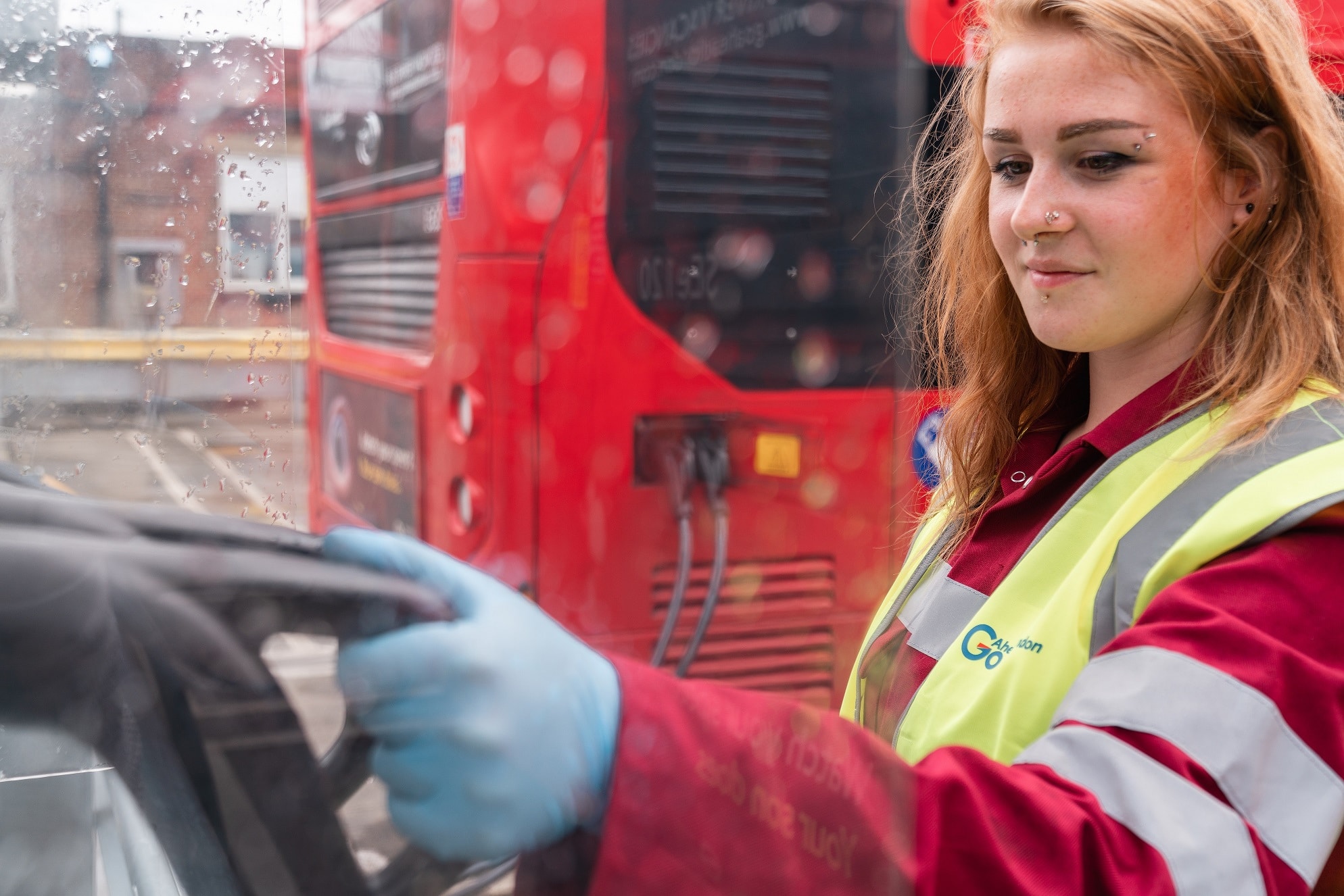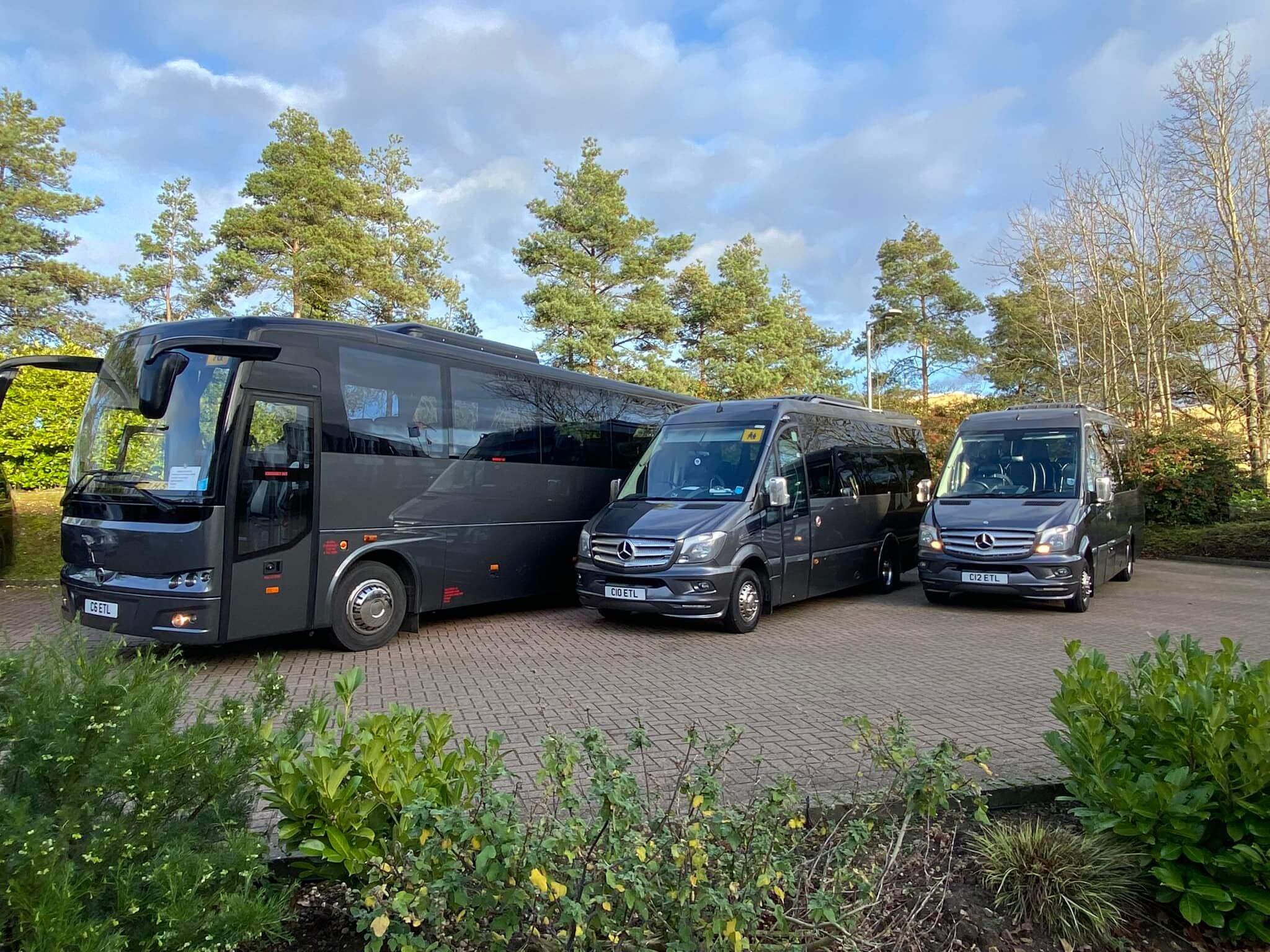McGill’s Buses CEO Ralph Roberts brings a wealth of coach and bus knowledge to the role of Confederation of Passenger Transport (CPT) President for 2022. He has extensive experience of buses at both large group and independent level, and while that segment is McGill’s primary focus, the Gourock company also has interests in coaches – something that it wants to expand in the medium term.
Mr Roberts is known for saying what he thinks. Ordinarily, he is not bound by all of the shackles that PLC representatives are, although anyone expecting that to unduly influence the Presidential approach during his tenure will be disappointed. Communicating the coach and bus industry’s needs clearly and compellingly is among his priorities.
Think about the future and not the past, says incoming President
The future is prominent in a lot of what Mr Roberts tells routeone. Dwelling on decisions of the past does not form part of his strategy. Also key is tuning out the peripheral noise that surrounds a lot of what stands to define the future of the industry. Instead, he is adamant that he will concentrate on the things that matter and which will facilitate “a just recovery” from the pandemic.
“There is a broad church of people who we must convince to get onboard with our arguments,” he explains, adding that there has been “too much avoidance of facts” in some politicians’ previous talks involving the sector. “We need to make the discussion fact based and keep it simple for people outside the industry, so they understand what is involved.”
A just recovery sits adjacent to another area that will occupy a lot of Mr Roberts’ work as President: Decarbonisation. McGill’s currently operates the largest fleet of zero-emission buses in Scotland. That is providing a good grounding in such technology.
But he is mindful both that there is still a lot to learn, and that the coach industry’s transition from diesel lags well behind that of buses. Ongoing uncertainty around funding and operating models for buses is also prominent in his thoughts, as is ensuring that bus users’ needs are listened to.
Communication is key if industry is to exert influence
“My priority is to get these debates heard,” he says. While engagement with politicians and other stakeholders may sound like a task that presently should take a secondary role to driving business recovery, Mr Roberts points out that there are two good reasons why it must be treated as urgent. Firstly, the industry’s future viability depends on the right ducks being put in the right order. Secondly, momentum with communications has grown during the pandemic and that must not be wasted.
Even so, “we need to work better as an industry to get [our] messages across. We are in the best place we have been for possibly two decades to do that. This has always been a very disparate sector, but we are more unified now than since deregulation.”
Leveraging crossover between coach and bus sectors
Buses’ importance in transporting front-line workers during the pandemic underlined their place in the economy, while coaches’ criticality to home-to-school and other transport segments has finally been acknowledged. Although understanding by politicians and local authorities of coaches’ place in the wider landscape remains modest, Mr Roberts believes that the complementary way in which coach and bus function together must inform elements of engagement by both CPT and operators.
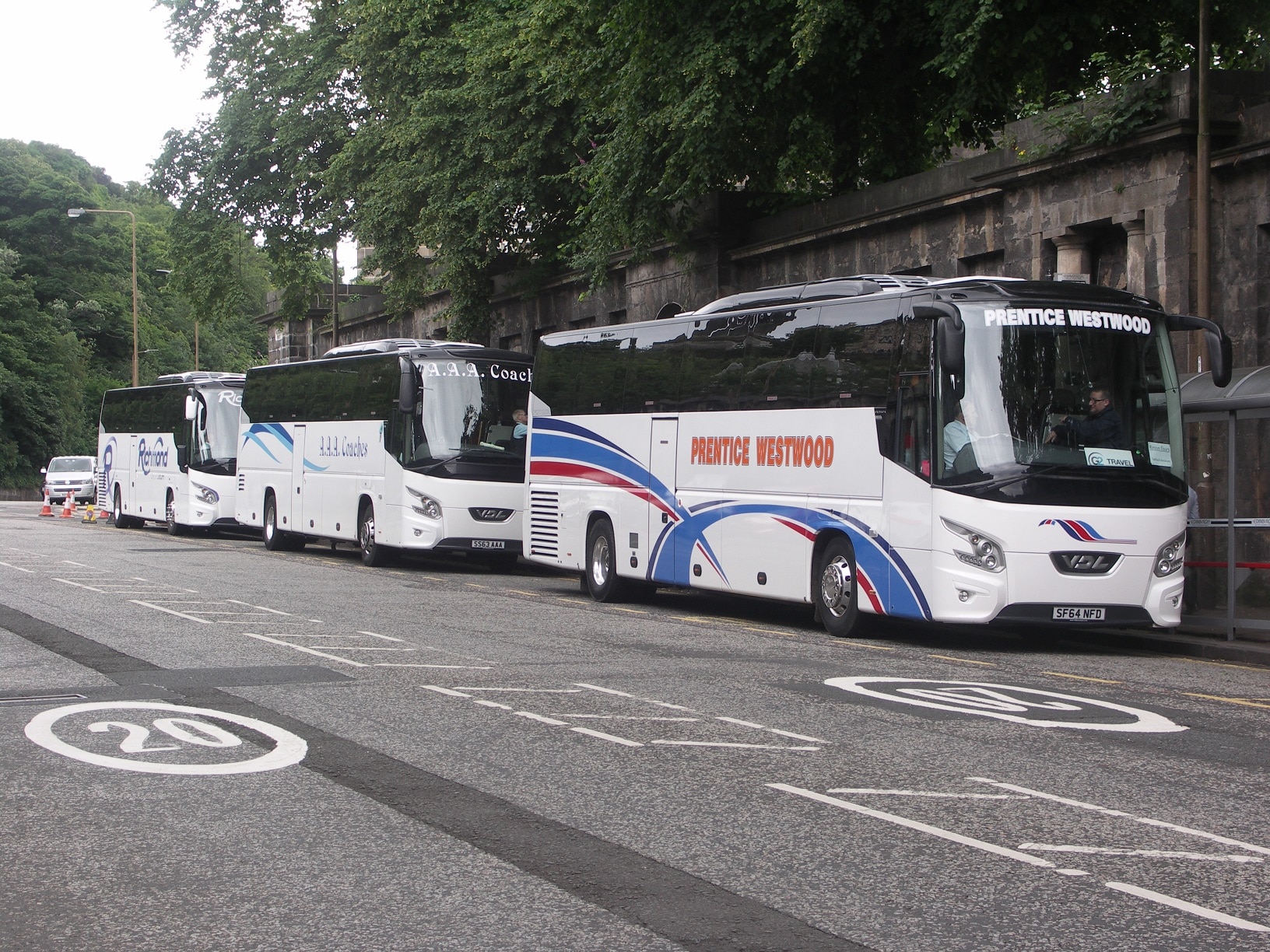
“We can exert the most influence where there is the most crossover, but we must also look after the ‘extremities’ of both segments,” he continues.
Decarbonisation is one of those shared areas. Coaches’ needs in that sphere must be kept prominent in policy work, but equally important are efforts at regional and member level.
“Coaches are crucial to the economies of some areas. At town hall level, officers need to understand how coaches visiting is good for local businesses. There cannot be regimes where it is expensive to stop in those locations. They must understand the importance of parking and access to the right areas.”
A further thing that should be grasped by politicians at all levels is that coach operators are often involved in a diverse range of work streams. “Coaching is a very diverse industry, and a trade body needs to pull all that together. It is also important for bus companies to understand what coach operators do.”
‘No room in the industry for the worst’
A line of communication that bus operators need to think about closely is that which exists with their customers, says Mr Roberts. Some already do that very well. Others, however, “can’t even tell their own staff what is going on.”
He points to the rail sector as an example of how communication could improve. While not perfect, train operating companies do a better job than some bus companies in passing information to customers, particularly where service cancellations are involved. “The railway communicates as a national network. We have a national network of buses. It would not take much for us all to buy into a charter of how we behave.”
Mr Roberts also advocates senior managers observing what is happening on the road. Experience of waiting at a stop when a McGill’s journey did not operate illustrated where improvement is required in how that situation is handled.
Such focus is doubly important now, when scrutiny by politicians of increased public control of buses is popular. Commercial operators’ methods are under the microscope, and he believes that a tiny minority exists in the bus business whose behaviour adds weight to calls for reregulation.
“There are a couple of bus companies that are destroying the industry. There needs to be recognition that what is going on in some places is not right and needs to change. If I were a politician speaking to those operators, I would be asking them to prove that they can do the job that they want to. If they could not, it would be taken off them.” In a hypothetical reregulated market, Mr Roberts would favour an approach that allows commercial nous above the baseline contract and a sharing of the benefits from any resulting patronage growth.
Time for sticks, not carrots, in decarbonisation shift
Road pricing is a topic that has grown in relevannce recently. Mr Roberts has strong views on it. He describes it as “impossible” to achieve decarbonisation without introducing road pricing or similar ‘sticks’ and believes that the time for discussion around them has passed.
“Whatever the message is, road pricing will probably be part of it,” he says. “Ultimately, government needs to get its skates on. We need to drive the debate so there is a just transition. Cars cannot effectively occupy 15 times the road space of a coach or bus passenger, which is what effectively happens.”
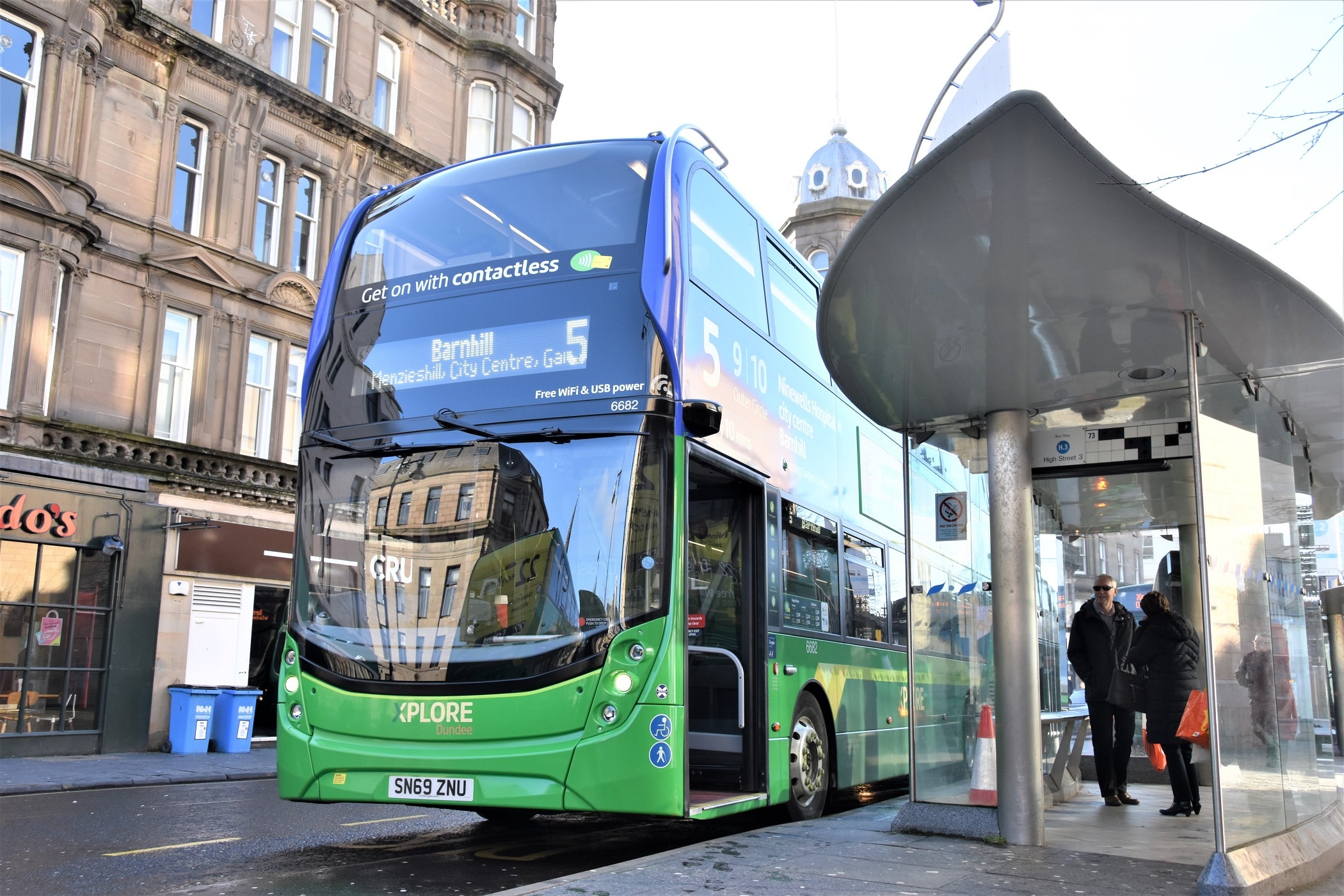
But that messaging should not take a ‘bus versus car’ approach, Mr Roberts continues. “It is people versus planet.
There must be no sacred cows. Bus is the dominant form of public transport in the UK, and our customers have the same power in the voting booth as the car lobby. Perhaps we should be lobbying passengers about how policy decisions affect them.”
Over-egged approaches from pro-car groups suggesting that individuals will be forced to give up private transport entirely must also be resisted. A major part of CPT’s work in 2022 will seek to change the debate on decarbonisation to one that focuses on modal shift, with independent research to be commissioned to clarify the benefits of doing so.
Positive times ahead? Yes, says Ralph Roberts
Despite the coach and bus sector’s current challenges, Mr Roberts believes that there are things to look forward to. Free bus travel for under-22s resident in Scotland gives an excellent opportunity to develop the bus commuters of tomorrow.
The same scheme gives those young people exposure to coaches, as it is valid on all such scheduled services within Scotland. If they can be shown that modern coaches are comfortable and offer numerous amenities, there may be other business to be had for the coach industry.
However, it will be necessary to ensure that the free travel scheme does not come at the expense of dedicated home-to-school services. “There is no use in it being good for bus but bad for some of the coach sector,” he says.
The Scottish Government’s aspiration for the majority of diesel buses in the country to have been displaced by zero-emission models by the end of 2023 is also an opportunity. While it is an ambitious policy, Mr Roberts believes that it is achievable with the right amount of funding, work behind the scenes and understanding. If it does come good, it will clearly showcase buses’ environmental credentials.
But the sector can only deliver on promises if it speaks clearly and with the same voice. Articulating that will be the biggest test of the President’s role in 2022.





















